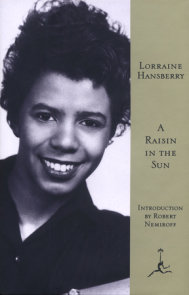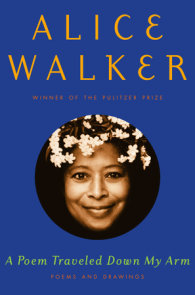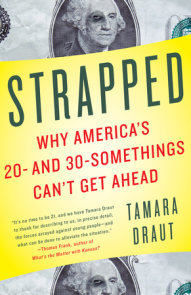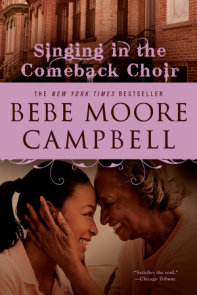TEACHING GUIDE
NOTE TO TEACHERS
Black Ice is a compelling autobiographical narrative that should be of particular interest to American high-school and college students. As American society becomes increasingly multiracial, more and more young Americans find themselves, as Lorene Cary did, in strange and unfamiliar worlds. Black Ice tells Cary’s story with truth and passion.
In 1972 Cary, a bright and ambitious black teenager from Philadelphia, was offered the opportunity to attend the elite St. Paul’s School in New Hampshire as a scholarship student. She would be one of the first black students, and one of the first girls, to study there. After some initial trepidation she decided to accept the challenge. Determined not only to succeed academically but to impress her personality on the school, to "turn it out," Cary threw herself into her new life with zeal.
Yet once she had settled in at St. Paul’s, Cary found her position to be unexpectedly difficult, often fraught with emotional ambiguities and potential traps. Had she earned her place at St. Paul’s fairly, or was she simply a "token black," part of a liberal experiment? Should she place her trust in the teachers and her white fellow-pupils, or should she remain suspicious of their motivations and loyalties? How might she best serve the interests of her race: by excelling at her studies, or by being rebellious? When she takes a position on the student council, will her black friends see it as a betrayal in favor of the power structure and values? And as time passes, Cary feels herself to be increasingly estranged from the family she loves and the black Philadelphia community that had been her home throughout her life.
Lorene Cary’s experiences, related with honesty and vulnerability, make up a story that any young reader can identify with. It raises questions that now, more than twenty years after Cary’s own school days, have yet to be resolved, and that will inspire strong responses and opinions from contemporary students.
TEACHING IDEAS
The questions, assignments, and discussion topics that follow are designed to guide your students in their approach to Black Ice as a work of literature and a highly personal document. It should enrich the students’ understanding of race relations in this country and of the unsettling experience of being black in a predominantly white culture, and inspire them to examine their own lives and the values and customs of the community they inhabit. The following suggestions should aid comprehension, inspire independent research and writing, and provide ideas for in-class discussion of individual themes. While reading Black Ice, students should be encouraged to research the history of American race relations and civil rights, and also to read the newspapers, paying special attention to current stories dealing with racial issues, particularly to those concerning young people.
DISCUSSION AND WRITING
Understanding the story
1. Why did Mama get angry at both Cary and her teacher during the elementary school science fair? What did her experience at the science fair teach Lorene Cary?
2. What words would you use to describe Cary’s feelings upon entering St. Paul’s? Defiance? Fear? During her first visit to the school she eats dinner "self-consciously, at the drop-leaf table under Mr. Scudder’s portrait. I assumed he was appalled, and I was pleased to think so" [pp. 22-23]. Why was she pleased?
3. Cary talks about the "big Yeadon house, which had not made us happier together, as I’d expected it would" [p. 25]. What does she imply in this sentence? What does she bring you to understand about her family life?
4. Cary worries about whether she is worthy of an education her parents had never had [p. 26]. Is this a reasonable fear, an understandable one? Do you think this worry affects her life at St. Paul’s? Why do you think her feelings of unworthiness continue to be so intense throughout her time at St. Paul’s?
5. In her Philadelphia school, Cary tells Mr. Dick, "If you get a really good report card, you feel like you better hide it on the way home" [p. 26]. What was it about the school culture that made pupils feel this? Do you feel this to be the case at your school, too? Does Cary find things to be different at St. Paul’s?
6. How does Cary react to the residents of the state school for the retarded who serve the St. Paul’s students their meals? Why does she feel that "it seemed wrong" for them to be there [p. 31]?
7. "I felt certain that my going away to school would pull the family further apart," Cary writes. "With unutterable shame I realized that I wanted to go anyway" [p. 34]. Do you think that Cary’s departure from home really does contribute to the troubles in her parents’ marriage? Is the guilt she feels reasonable? How does that feeling of guilt affect her life at St. Paul’s?
8. Why does Cary include the story of stealing Christmas trees with her father on her St. Paul’s application [p. 34]? What effect might it have upon those who will read it?
9. Against her expectations, at St. Paul’s Cary engages in "high-decibel, bare-naked black bonding" [p. 56]. Why do the African-Americans stick so closely to their own group? What comforts does it offer? Does the group shield these students, however, from some experiences that might be valuable to them?
10. Why does Cary include the quote from Tillich on page 65? What does it mean to her and what connection does it have to her story? Why does she return to it later on?
11. What does Fumiko teach Cary about herself and her own preconceptions about other people? What important lessons does Cary learn from friends like Fumiko and India?
12. How does Cary respond to the Third World Coalition’s veneration for the former student Bernard Cash? What does she mean when she says "I hadn’t come to St. Paul’s to survive, I had come to turn it out" [p. 74]?
13. What do you think is the significance of the dreams Cary describes on pages 81-82? Why does she include them in her narrative?
14. Cary confesses to being mortified by her "family’s lack of Third World unity" [p. 96]. How do the ideas on the racial struggle held by Cary and her generation differ from those held by their parents? How do they differ from those of your own generation?
15. Why does Cary feel estranged from her Philadelphia friends, such as Karen and Ruthie, after spending time at St. Paul’s?
16. What does Ricky’s attitude toward his child and the child’s mother say about his character? Why does Cary continue to be Ricky’s "girlfriend," despite her ambivalent feelings for him?
17. Why does Cary take to cruising the dorm and committing petty theft? How does she justify it to herself? How does she differentiate it from "real stealing" [p. 113]? Why does Jimmy feel compelled to risk his career by stealing cigarettes from the supermarket?
18. Why does Cary quote the excerpt of the Shakespeare sonnet [p. 126]? What meaning do these words of Shakespeare’s have for her own life and situation?
19. What is "Black Ice"? What does this phenomenon mean to Cary, and why does she use it as a metaphor for her own life at St. Paul’s? Why has she chosen this as a title for her book?
20. When she goes back to Philadelphia for her summer holiday, Cary says, "I was back to black and white in America as I’d known it before…. Everybody figured he had the other side figured out. I wasn’t able to think so with the same certainty any longer" [p. 156]. Of what is she no longer certain? Which of her ideas have been most seriously challenged or disproved?
21. Why does Cary decide not to see Booker again after their date? What does she mean when she says they’d "both seen enough" [p. 171]?
22. Why is Cary so upset after slapping Carole? Why does she perceive it to be such a definitive moment in their lives and relationship?
23. Cary refers to the world outside of St. Paul’s as "the real world" [p. 174]. Why does she use this term? In what way is St. Paul’s not "real"? Is its code of behavior and values less realistic than that of the world Cary’s family lives in?
24. How does Alma’s character differ from Cary’s? Which of them seems better equipped to deal with life at St. Paul’s? With the world beyond school?
25. Why are many of Cary’s friends uncomfortable with her position on Student Council? Do you feel that she has, in some way, betrayed the values of the group? How would you explain Janie’s hostile response to the way Cary treats her new responsibilities [p. 179]?
26. Cary considers going to Princeton "because F. Scott Fitzgerald, the writer who articulated my fearful suspicions about my white schoolmates, had gone there" [p. 186]. Why would this make the school attractive to her? Might it not make it more intimidating?
27. On page 190 Cary says that she feels gratitude for Mr. Price but no longer trusts him. Why does she not trust him? Do you think she is correct to feel mistrust?
28. What kind of a role model does Miss Clinton provide for Cary and her friends? How does her presence at the school improve Cary’s life there?
29. Cary feels that her family’s fantasies about what St. Paul’s would do for her were "getting out of hand" [p. 211]. What are those fantasies, and how do they differ from Cary’s own? Are these fantasies realistic or unrealistic?
30. When she receives the Rector’s Award Cary suspects that it is "a booby prize, maybe even the badge of a Tom" [p. 219]. What does she mean by this? Do you feel that her suspicion is justified?
31. At her class reunion Cary refers to herself as a "crossover artist" [p. 233]. What does she mean by this term? Is it a good one for what she is trying to convey?
32. What is Tillich’s definition of grace? What does grace mean in Cary’s own life? Could you describe her story as a story of the search for grace?
In-depth discussion
1. When considering whether to apply to St. Paul’s, Cary reflects that "this education was more than knowledge; it could mean credentials, self-confidence, power" [p. 8]. What, in fact, did Cary receive from her St. Paul’s education? Did she get what she had expected from the experience, or something quite different?
2. The African-American teenagers going to St. Paul’s fear being stereotyped by their white schoolmates; their mothers fear their children’s potential "powerlessness, their vulnerability to white adults who might equate sharpness of the mind with sharpness of features." Do you find that Cary was, in fact, a victim of this kind of stereotyping by her peers and teachers? What stereotypes did she herself hold about whites before she attended St. Paul’s? How did her ideas about white people change during the course of her education?
3. Cary remembers her feelings of confusion at the school: "…was it true that these teachers expected less of me than of my white peers? Or had I mistaken kindness for condescension?" [p. 5] Reading between the lines of Cary’s narrative, trying to understand the feelings of the white teachers at St. Paul’s, how would you answer these questions? Did you find the teenage Cary to be overly sensitive, or were her worries justified? "Sometimes `sensitive’ was what kids called each other when they wanted license for cruelty, or what white people said when they did not want to bother to change." Do you find any examples of this kind of behavior among the characters Cary depicts?
4. "Like a tourist in a foreign country," Cary writes, "I felt that it might be possible to come to this school and be free of my past, free to re-create myself" [p. 23]. Do you feel that she does, in fact, succeed in re-creating herself? If not, how might you describe the way that the school transforms her? Is it truly possible to re-create yourself? If so, to what extent?
5. On first entering the chapel at Saint Paul’s, Cary feels that "My music would not fit here. Neither would my God …" [p. 24]. In what way is "her" God different from the God of the St. Paul’s chapel?
6. At one point in the narrative, Cary sees herself as a "token black" [p. 27]. How would she define this concept? How would you define it? Do you think it is an appropriate description of her role at St. Paul’s? Do you feel that she is justified in seeing her presence at the school as "a sort of liberal-minded experiment" [p. 53]? If it is indeed an experiment, what is the purpose of that experiment?
7. How would you describe the characters of Lorene Cary’s mother and father? In what ways have they contributed to making their daughter the person she is? What effect do the changes in their marriage have on Cary’s developing character?
8. As a student, Cary saw her teachers as "a monolith of critical white adulthood"; later, a teacher herself, she sees them revealed as "a community of idealists" [p. 225]. What changes has Cary herself had to undergo in order to achieve this new point of view?
9. As an adult, looking back, Lee Bouton describes her urban black image as "a literary creation, one she’d absorbed from her peers and fashioned from books…" [p. 32]. How would you describe this image? What books might have helped create it? Do other St. Paul’s students, including Cary, also try to consciously create an image? Do the white students do this, too?
10. The African-American students seek to be "in [the white] world but not of it" [p. 59]. What do they mean by this? Will such a goal ever be attainable? Is it, indeed, desirable?
11. On Cary’s religion exam, the only question is "Who is Jesus?" How does Cary answer the question? Does she succeed in making the "leap of faith" she seeks? How, if at all, does she reconcile her personal idea of religion with those imparted to her by her Philadelphia church and the St. Paul’s chapel?
12. How would you describe Cary’s relationship with Ricky? Why does she feel the need to be with him, and in what role does she cast herself when they are together? How would you compare this relationship with the one she enjoys with Anthony, with her summertime encounter with Booker, or her friendship with Jimmy? What does "love" mean to the youthful Cary? What does it mean to the older Cary who is telling the story?
13. "She was nothing but a whore" [p. 111], Ricky says of the mother of his child. How does this make Cary feel, and what does it say about Ricky’s character? Cary imagines herself pregnant and barefoot, a broad cliché. What other clichés of African-Americans as seen by whites haunt her?
14. Of what significance are the family stories Cary retells for us on pages 128-132? Why does Cary think of them at this turning point of her life? How do they connect her with her own, African-American culture, while at the same time helping her to move outside and beyond it? Are these powerful myths ever harmful to her? Do they hold her back in any way?
15. Cary has a complex relationship with her mother. In what way does she identify with her mother, and in what way does she seek to differentiate herself from her? Why does she seem to feel such responsibility for her mother? She says that the dance she performs at the recital is "Mama’s story" [p. 183]; what does she mean by that? What gift does she hope to give her mother in dedicating the dance to her?
16. Cary says that for black women, "tall and strong as cypress trees…pain and shame and cowardice and fear had to be kept secret" [p. 192]. Is this a phenomenon you have observed? Does it apply to white women as well? What might be the reason for it? Why is the appearance of strength so important to these women?
17. "Even if my great-grandfather did own slaves, it’s not fair to hold me responsible," says a white student, to which Cary’s response is "They shouted fair, as if fair had anything to do with it" [p. 197]. Which of them is right? Might they both be right, or is it impossible for them both to be right?
18. One of the young students whom Lorene Cary gets to know when she is a trustee of St. Paul’s asks her an interesting question: "Would you send your daughter to St. Paul’s?" [p. 3]. After reading her story, what do you think her answer might be? If you were in her place and had shared her experiences, what would your own answer to this question be?
SUGGESTED ACTIVITIES
1. How do the two cultures Cary describes–the culture of St. Paul’s and that of Cary’s own Philadelphia neighborhood–differ? What values does each community prize? How do these communities and their values differ from your own community, or other communities with which you are familiar?
2. Cary writes that she came to be at St. Paul’s "because of sit-ins and marches and riots" [p. 53]. Research the history of the Civil Rights movement from the World War II period until today, paying special attention to segregation ("Jim Crow") laws and to the legal battles of the 1940s. How did opportunities for African-American citizens change from the 1940s until the early 1970s, when Cary attended St. Paul’s? How have they changed in the twenty-odd years since then? How might they still change for the better?
3. Cary feels that more than just her personal success or failure is at stake in her St. Paul’s career. "Hadn’t I been told, hadn’t they said all along, that each of us had work to do? Wasn’t it time for me to play my part in that mammoth enterprise–the integration, the moral transformation, no less, of America?" [pp. 32-33] Do you find the pressure Cary feels to be too great for a young girl to take on? How, in your opinion, might young people, both black and white, do their part to effect the "moral transformation" of America?
4. The period of Cary’s youth was the time when the "Black is beautiful" philosophy was new and fresh. Cary studies Chaka Zulu at an evening course; she listens to Jesse Jackson shout "I am Somebody!" Do you find that racial attitudes today are different from those Cary describes in the 1970s? What has changed, what has remained the same?
5. Reserving scholarships for promising students like Cary is a form of affirmative action. Affirmative action is a subject of heated debate in the 1990s. Write a short essay describing your views on affirmative action. You may use Cary’s case, and any others you are familiar with, as personal examples.
6. Write a short essay describing a time in your life when you felt yourself, as Cary did at St. Paul’s, to be an outsider. What special fears did you have, and how did you cope with them? Did you come later to see that time more clearly, as Cary did in the years after her graduation from St. Paul’s? With which of Cary’s feelings as an outsider are you especially familiar and sympathetic?
OTHER TITLES OF INTEREST
Maya Angelou, I Know Why the Caged Bird Sings; James Baldwin, The Fire Next Time, Nobody Knows My Name; Edwidge Danticat, Breath, Eyes, Memory; Ralph Ellison, Invisible Man; Melissa Fay Greene, The Temple Bombing; Martin Luther King, Jr., Stride Toward Freedom, Why We Can’t Wait; Lorraine Hansberry, A Raisin in the Sun, To Be Young, Gifted and Black; Anthony Lewis and The New York Times, Portrait of a Decade: The Second American Revolution; Toni Morrison, Beloved; Esmeralda Santiago, When I Was Puerto Rican; C. Vann Woodward, The Strange Career of Jim Crow; Richard Wright, Native Son.
ABOUT THIS GUIDE
This teacher’s guide was written by Peter Trachtenberg. Peter Trachtenberg has taught writing and literature at the New York University School of Continuing Education, the Johns Hopkins University School of Continuing Education, and the School of Visual Arts.
COPYRIGHT
Copyright © 1996 by VINTAGE BOOKS
×
Become a Member
Just for joining you’ll get personalized recommendations on your dashboard daily and features only for members.
Find Out More Join Now Sign In



















